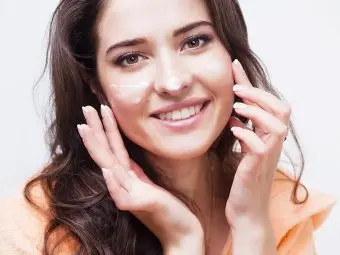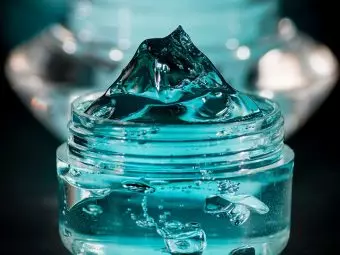How Does Your Skin React To Everyday Situations?

Image: Shutterstock
Our skin is truly a remarkable organ. The more we learn about it, the more it surprises us. It serves as the body’s first line of defense against external threats. And, not just that, it also reflects our internal health and emotional state. From the moment we wake up to the time we go to bed, our skin interacts with various stimuli and situations. Each interaction leaves its unique imprint on the skin. Understanding how our skin reacts to everyday situations can help us to better care for our skin. In this article, we will talk about how our skin reacts to everything that happens around us. Read on!
1. Morning Routine
As we rise to greet the day, our skin also wakes up with us. Cleansing our face with water and a gentle cleanser helps remove sweat, oils, and impurities accumulated overnight. For some, this may lead to a refreshed look while others may experience dryness or tightness. This is particularly true in colder climates or with harsh cleansers.
Applying moisturizer afterward helps replenish lost hydration and maintains the skin’s barrier function, protecting it from environmental stressors throughout the day. Those with sensitive skin may opt for fragrance-free and hypoallergenic products to minimize potential irritation.
2. Environmental Factors
Throughout the day, our skin encounters a multitude of environmental factors that can influence its behavior. Exposure to ultraviolet (UV) radiation from the sun, for instance, prompts the skin to produce melanin (1). This often results in tanning or, in cases of overexposure, sunburn. Consistent sun protection through the use of sunscreen with a broad-spectrum SPF is essential in preventing sun damage and premature aging.
In urban environments, air pollution poses another challenge to skin health. Dust and other pollutants can penetrate the skin, triggering inflammation, oxidative stress, and exacerbating skin conditions such as acne and eczema. Cleansing the skin thoroughly in the evening helps remove pollutant particles and impurities, allowing the skin to breathe and regenerate overnight.
3. Stress And Emotional Well-being
Our skin is intricately connected to our emotional well-being. It often serves as a mirror to our inner state. Stress, anxiety, and other emotional upheavals can manifest physically on the skin. It can lead to flare-ups of conditions like acne, eczema, or psoriasis. This phenomenon is known as psychodermatology (2). It highlights the bidirectional relationship between the mind and the skin.
Practicing stress-relief techniques such as mindfulness, meditation, or deep breathing exercises can help mitigate the impact of emotional stressors on the skin. Additionally, establishing a consistent skincare routine and prioritizing self-care activities can provide a sense of stability and control. It can also help in promoting overall skin health and well-being.
4. Diet And Nutrition
The foods we consume play a significant role in skin health, with certain dietary choices influencing its appearance and resilience. A diet rich in antioxidants, vitamins, and essential fatty acids supports collagen production, promotes skin elasticity, and defends against free radical damage.
Conversely, excessive consumption of processed foods, sugary treats, and inflammatory ingredients may exacerbate skin conditions such as acne, rosacea, or eczema. Maintaining a balanced diet with plenty of fruits, vegetables, lean proteins, and whole grains nourishes the skin from within, fostering a radiant and youthful complexion.
5. Physical Activity
Exercise benefits not only our overall health but also our skin. Engaging in regular physical activity promotes circulation, delivering oxygen and nutrients to the skin cells while eliminating toxins and waste products. However, sweat and friction generated during exercise can also lead to skin irritation and breakouts if not properly managed.
Wearing breathable, moisture-wicking fabrics and showering promptly after exercising helps minimize sweat-related skin issues. Furthermore, incorporating skincare products formulated for active individuals, such as non-comedogenic cleansers and lightweight moisturizers, can help maintain skin health while supporting an active lifestyle.
6. Evening Wind Down
As the day draws to a close, our skin undergoes a transition, preparing for rest and rejuvenation during the night. Removing makeup and impurities accumulated throughout the day allows the skin to breathe and facilitates cellular turnover. Incorporating gentle cleansing techniques and hydrating serums or overnight masks supports the skin’s natural repair processes, promoting a radiant and refreshed complexion the next morning.
By understanding how our skin reacts to everyday situations, we can tailor our skincare routines and lifestyle choices to support its health and vitality. From practicing sun protection and stress management to nourishing our bodies with nutrient-rich foods, small adjustments can make a significant difference in maintaining healthy, glowing skin for years to come. So follow these simple tips and enjoy your healthy and glowing skin!






























